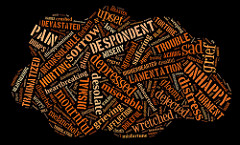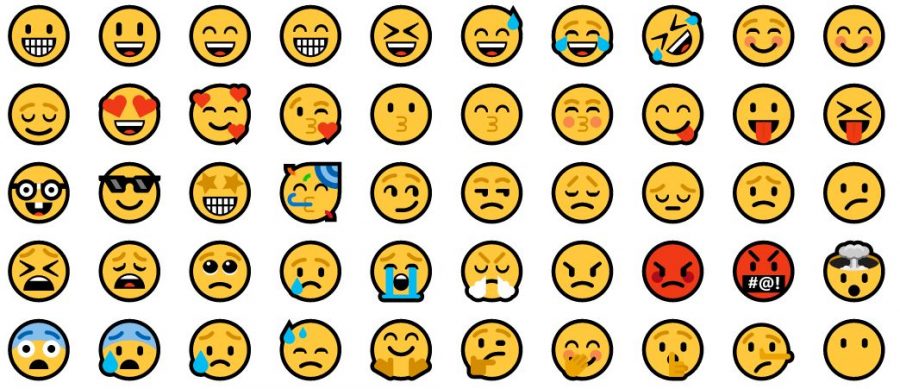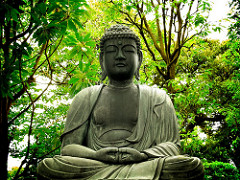It is widely known that the third Monday in January has been dubbed the ‘Blue Monday’. The reason for this was possibly due to having over-indulged ourselves from Christmas and New Year’s, after which, we are then in a period of some remorse, regrets or guilt about our intemperance and indulgence. Thus, that is why the majority have a New Year resolution.

Every New Year brings a sense of renewal which elicit change. I want to share some of my New Year’s resolutions to give you some ideas for yours.
- Start an exercise regime that you love. If you decide to take up exercise for New Year resolution, make sure it is for the right reason and that you are passionate about it. If you take up exercise to lose weight, for example, your resolution will be short-lived because it is a chore. If you start exercise such as Yoga, Tai Chi, or Pilates because you are passionate about your flexibility, wellness and healthy body balance then your goal will be long-lived. If you love the exercise that you started, your resolution will be long-lived.
“I reconnected to kickboxing which was a part of my Muay Thai roots, and I’m so happy that I’m still doing it a year later!”
- Practice mindful acts. When you apply mindfulness to your behaviours, feelings, thoughts and actions, you will become more self-aware. Mindfulness is about making conscious of what you’re doing, thinking and feeling. It is about recognising and making your autonomous processes conscious. In the awareness, you will come to know yourself more intimately, which is a beautiful feeling.
- Have a compassionate mind. To have compassion and concern for your mind, you need to be mindful of your thoughts. As you are mindful of your thinking style, pattern and cognition, you will have concern and compassion for the way you think. We all have a different way to process things around us. To know how you think, you need to observe what think and see the pattern of the thoughts.
 For example, when someone asked me to do something, I had previously thought it was a form of command because my experiences with authority have been negative.
For example, when someone asked me to do something, I had previously thought it was a form of command because my experiences with authority have been negative.
Having a compassionate mind means having the ability to observe when the thought arises, and notice whether it was based on past experiences or the present situation. Then, you can notice your reaction and have compassion for the part that fear authority or authoritative figure.
- Be grateful every day. If your New Year’s resolution is to be grateful. You will need to be appreciative of yourself and have compassion for mistakes that you make in the process of re-learning a new behaviour. Being grateful is having a deep sense of gratitude and thankfulness for something or someone, that include yourself too. Expressing gratefulness to yourself is a part of Self-care and Self-love. An expression of gratefulness to yourself might include feeling a heart-warming, deep sense of gratitude and love. It is a thankful experience of kindness that comes with warmth, and unconditional acceptance. Gratefulness is a constant state of being, it is achievable through having a compassionate mind.
“An example of being grateful, for me, include feeling appreciative of my abilities and limitations..”
- Be thankful every day. Make being thankful every day a part of your New Year’s resolution. Even if it is difficult, being thankful gives us a positive feeling. Being thankful is an act of gratification for oneself and others. It is a relief of an appreciation expressed verbally, non-verbally or behaviourally. Being thankful for me include being appreciative of the universe for its guidance and protection.
“I am thankful to the universe for providing me with all my basic needs and psychological needs for growth, for Self-fulfilment and satisfaction.”
- Make time to be with yourself in your inner world for peace of mind. It is a great place to be. Your inner world should be your sacred sanctuary. Being in your mind does not have to be unpleasant or stressful. Being in your inner world through meditation will help you connect with all aspects of your beingness. If you struggle to be within your inner world, this New Year’s resolution is ideal for you.
 In order to be connected to your inner world and find your inner sacred sanctuary, you got to want to know more about yourself.
In order to be connected to your inner world and find your inner sacred sanctuary, you got to want to know more about yourself.
You will need to be interested and curious about finding a way to have inner peace.
But, most importantly, you got to face the fears, chaos and shadows in the dark recesses of the mind to see the radiant light beyond it.
- Be positive and optimistic. Having positivity and optimism is achievable for everyone. It is about being conscious of your thoughts and reframing the negativity with positive statements. If you are automatically negative in your thinking style, you will need to be mindful and consciously changes your thoughts immediately. Our thoughts and behaviours are habitual through conditioning and experiences relating to others. When you catch your negative thoughts, challenge them and counteract them immediately with positive thoughts.
“I regularly catch my negative criticism when I trip up on something.”
Then, I would remind myself that I am fallible and will make mistakes. I can learn from this. I would reassure myself o my abilities to learn and grow. I would encourage myself not to be fearful of the experience or event because next time, I would and can do things differently. I would praise myself for the kind words and then the feeling of love and appreciation comes with the positive inner dialogues.
- Be kind and loving. To be kind and loving to another, you must first have kindness and love for yourself. If you find yourself being kind to everyone, without having loving feelings for yourself, you will become a victim of the persecutors or the predators.
 These acts of loving-kindness to others are false and unobtainable. It implies that you are kind and loving for sure, but you act and behave kindly and lovingly to others for the reciprocal acts. You cannot make anyone love you. But, we all do and try, and mostly in vain. This is because we have not learned to be kind and love ourselves first. It can take a long time to have Self-love, but we can begin with having kindness for ourselves.
These acts of loving-kindness to others are false and unobtainable. It implies that you are kind and loving for sure, but you act and behave kindly and lovingly to others for the reciprocal acts. You cannot make anyone love you. But, we all do and try, and mostly in vain. This is because we have not learned to be kind and love ourselves first. It can take a long time to have Self-love, but we can begin with having kindness for ourselves.
“I say kind words to myself when I want to create positive feelings. I remind myself that I am loved, by my-Self.
Acts of kindness for myself include looking after my physical and mental states, ensuring that I am nourished and replenished, ensuring that I have fun and play. I make time for joy and happiness. I appreciate the beauty around me, where ever I am.
- Learn something new about yourself every day. If you are on a soul searching or Self-discovery journey, this New Year’s resolution might be relevant to you. You will never stop learning until the day you die. We all learn new things every day of our existence.
 Learning something new about yourself should be something that you like and find interesting. If you don’t like what you’re learning about yourself, then, you are not yet ready for this wondrous journey because you will learn some things that you might not like.
Learning something new about yourself should be something that you like and find interesting. If you don’t like what you’re learning about yourself, then, you are not yet ready for this wondrous journey because you will learn some things that you might not like.
Self-discovery is about finding out and learning everything about yourself. The more you know about yourself, the more Self-aware you will become. Today, I learned that I love my jobs, I like the varieties in my dual roles. They are opposing roles but has their own rewards. I am neither/or but both/and. For tomorrow, I am certain that I will learn something else new.
- Do some thing differently. This New Year’s resolution was a real challenge for me. This is about doing something different in the mundane of life, but it does not have to be a chore or a grind. Generally, we, humans are a creature of habit. Who does not like to have a routine, a schedule or plan or a diary filled with events? To do something differently is about stepping out of our comfort zone, stepping into the unfamiliar. This resolution focuses on changing and change of unhelpful habit patterns. Your habit patterns are not a problem until they are no longer helpful or useful. Our habits serve a purpose to our autonomous processes. If they are still helpful, then there is no issue.
 However, if you want growth and development, you do need to be flexible in your approach and processes. Being flexible and adaptable is a positive approach to dealing with the daily challenges of existence.
However, if you want growth and development, you do need to be flexible in your approach and processes. Being flexible and adaptable is a positive approach to dealing with the daily challenges of existence.
If you are rigid and inflexible to change, you can become easily stressed, quick to anger or easily anxious about something or someone. Doing things differently does not have to be something big to start off with. I started with small changes such as taking stairs instead of lifts or starting to eat more vegetables and eventually to bigger changes such as changing the way I think or judge others in passing.
- Make time to do nothing. This was my favourite New Year’s resolution. I had a real challenge with doing nothing. I am an active person, and I am mostly fidgety which is a habit of restless legs syndrome.
“As a child, doing nothing equates to laziness. I was discouraged from sitting still or being relaxed.”
I was often criticised for not doing something. Doing nothing was unfamiliar to me, especially in the state of relaxation. I noticed that I wanted to do something to help me relax. This mindset took some time to break down because of years of unhelpful conditioning.
I don’t yet know what this year’s New Year’s resolution will be for me, but I know that it will be something that I look forward to challenging myself. I see these resolutions as a goal to attain in the year, but it should also be something that you regularly keep in place year on year.
Have fun creating your New Year’s resolution!





 Mental health concerns the health of our mind, psyche and mental construct. This includes our thoughts, our thinking style and our mental model of the world. The mind never sleeps because it works to ensure that our internal organs are functioning at all times. It operates on a cycle that recurs every twenty-four hours, and it is better known as the
Mental health concerns the health of our mind, psyche and mental construct. This includes our thoughts, our thinking style and our mental model of the world. The mind never sleeps because it works to ensure that our internal organs are functioning at all times. It operates on a cycle that recurs every twenty-four hours, and it is better known as the  You can buy daylight
You can buy daylight  For a healthy body-mind, we need to take care of the physical body as this helps maintain a healthy mind. Eating a regular, colourful and balanced diet is essential for positive physical health.
For a healthy body-mind, we need to take care of the physical body as this helps maintain a healthy mind. Eating a regular, colourful and balanced diet is essential for positive physical health. Naturally, as we take care of our physical body, we also need to consider our Spiritual Self too. Nurturing our spiritual Self include adopting rituals and practices that align with our beliefs, including religious and cultural traditions. Nurturing your soul also include transparency, honesty and being truthful to yourself. This means confessing and admitting your mistakes and take ownership of your responsibilities. Acknowledge your wrongdoings and let go of the false pride. Inevitably, you can find forgiveness for yourself and for others.
Naturally, as we take care of our physical body, we also need to consider our Spiritual Self too. Nurturing our spiritual Self include adopting rituals and practices that align with our beliefs, including religious and cultural traditions. Nurturing your soul also include transparency, honesty and being truthful to yourself. This means confessing and admitting your mistakes and take ownership of your responsibilities. Acknowledge your wrongdoings and let go of the false pride. Inevitably, you can find forgiveness for yourself and for others.
 The people closest to you mean individuals nearest to you, as this may not be your immediate family. The people we choose to have around us impact our being. You might have lots of family members but may not live close to them. You might live closer to friends and work colleagues. The people around us influence our lives. Begin by appreciating those around you, that includes your neighbours and the community in which you live. After all, a part of you knows why you have chosen to live where you are. Start appreciating those people that are closest to you.
The people closest to you mean individuals nearest to you, as this may not be your immediate family. The people we choose to have around us impact our being. You might have lots of family members but may not live close to them. You might live closer to friends and work colleagues. The people around us influence our lives. Begin by appreciating those around you, that includes your neighbours and the community in which you live. After all, a part of you knows why you have chosen to live where you are. Start appreciating those people that are closest to you. Fake it until you make it. It might seem like an effort and difficult to foster a smile. But, it is effortless. Curl your lips together and grin. Turn that frown upside down! Smiling and positioning our mouth into the smile helps to improve our moods as the body is ‘tricked’ into releasing cortisol and endorphins. We all know all the many benefits of these two magical chemicals in the body. But, did you know that it is also catching?
Fake it until you make it. It might seem like an effort and difficult to foster a smile. But, it is effortless. Curl your lips together and grin. Turn that frown upside down! Smiling and positioning our mouth into the smile helps to improve our moods as the body is ‘tricked’ into releasing cortisol and endorphins. We all know all the many benefits of these two magical chemicals in the body. But, did you know that it is also catching?
 Generally, feelings are my friend, and I have made acquaintances with almost all of my emotions. I had come to accept feelings and emotions as a part of my experiences to be felt. I had embraced and incorporated feelings and emotions within my being. I have also allowed myself to mindfully and consciously express the feeling felt. I had even released inherited, trapped and preconception emotions, as well as unblocking heart-wall emotions. I had healed compound and post-traumatic emotional reverberation too. But, as an empath, I had learned the hard way how my feelings can still affect me, and most importantly, how other people’s emotions also impacted me. I had occasionally absorbed other people’s emotional resonances, and I had allowed that to affect me.
Generally, feelings are my friend, and I have made acquaintances with almost all of my emotions. I had come to accept feelings and emotions as a part of my experiences to be felt. I had embraced and incorporated feelings and emotions within my being. I have also allowed myself to mindfully and consciously express the feeling felt. I had even released inherited, trapped and preconception emotions, as well as unblocking heart-wall emotions. I had healed compound and post-traumatic emotional reverberation too. But, as an empath, I had learned the hard way how my feelings can still affect me, and most importantly, how other people’s emotions also impacted me. I had occasionally absorbed other people’s emotional resonances, and I had allowed that to affect me. Feeling unsafe and insecure are intrapsychic emotions. They are the core woundings from a less than ideal early environment in childhood. But, we do not have to let the past define the present or the future. These feelings often stemmed from inconsistency, chaotic and dismissive attachment patterns from our caregivers. But, they are not to blame because they too were the victim of their core woundings.
Feeling unsafe and insecure are intrapsychic emotions. They are the core woundings from a less than ideal early environment in childhood. But, we do not have to let the past define the present or the future. These feelings often stemmed from inconsistency, chaotic and dismissive attachment patterns from our caregivers. But, they are not to blame because they too were the victim of their core woundings. Feeling insecure, succeed feeling unsafe. When feeling insecure, a child feels awkward and inadequate in their abilities, skills and resources. The child lacks confidence, have doubts and distrusts themself, others and the world. Thus, the child will grow up to seek validation from the exterior world, thinking it would soothe their inner sanctum. When we are insecure about ourselves, we compensate for the lacking by constantly looking for ways to feel safe and secure. We also compensate by avoiding situations or people, and we may become controlling, adopting perfectionistic traits, or have obsessive-compulsive behaviours. We will often look for what is missing within outside of ourselves. We do this by collecting (material) things, including having people around us that makes us feel good. Unfortunately, we will not fully soothe that void looking externally when our intrapsychic world is unsafe.
Feeling insecure, succeed feeling unsafe. When feeling insecure, a child feels awkward and inadequate in their abilities, skills and resources. The child lacks confidence, have doubts and distrusts themself, others and the world. Thus, the child will grow up to seek validation from the exterior world, thinking it would soothe their inner sanctum. When we are insecure about ourselves, we compensate for the lacking by constantly looking for ways to feel safe and secure. We also compensate by avoiding situations or people, and we may become controlling, adopting perfectionistic traits, or have obsessive-compulsive behaviours. We will often look for what is missing within outside of ourselves. We do this by collecting (material) things, including having people around us that makes us feel good. Unfortunately, we will not fully soothe that void looking externally when our intrapsychic world is unsafe. Always put yourself first, you matter the most! This is not a selfish thought, but rather a self-care process. You have to look after number one (YOU). You have to move past caring for others first. Undoubtedly, we were conditioned to be considered, to be nice, to be kind to others. We were told to think of others, to be helpful and to be thoughtful of others. We were taught to believe that it matters what others think about us. But, in so doing, we neglected our own needs and care. I certainly thought that if I was helpful, nice and kind, somehow, I would feel safe in being altruistic.
Always put yourself first, you matter the most! This is not a selfish thought, but rather a self-care process. You have to look after number one (YOU). You have to move past caring for others first. Undoubtedly, we were conditioned to be considered, to be nice, to be kind to others. We were told to think of others, to be helpful and to be thoughtful of others. We were taught to believe that it matters what others think about us. But, in so doing, we neglected our own needs and care. I certainly thought that if I was helpful, nice and kind, somehow, I would feel safe in being altruistic. When our external world is unsafe, we introspect and come to believe that our inner world is too. As we continue to think this way, we start to look for ways to feel safe and be safe. We tend to see threats when there are none. We make excuses for people, things and situations to minimise the threat, which may be imaginary. We may make excuses to change our behaviours and our mindsets because we are complacent in the familiar. This can keep us stuck in hypervigilant behaviours.
When our external world is unsafe, we introspect and come to believe that our inner world is too. As we continue to think this way, we start to look for ways to feel safe and be safe. We tend to see threats when there are none. We make excuses for people, things and situations to minimise the threat, which may be imaginary. We may make excuses to change our behaviours and our mindsets because we are complacent in the familiar. This can keep us stuck in hypervigilant behaviours. What we think, we will manifest because it was impressed in the mind. If you think that you are not safe, lacking in confidence or not worthy you are essentially broadcasting this unconsciously. We don’t consciously mean to send out these unconscious perceptions but we do, and we project it.
What we think, we will manifest because it was impressed in the mind. If you think that you are not safe, lacking in confidence or not worthy you are essentially broadcasting this unconsciously. We don’t consciously mean to send out these unconscious perceptions but we do, and we project it. When we feel unsafe, threatened or insecure it is often because the love is not there. Our feelings begin internally as a result of an external stimulus that we introject, but we could also be absorbing other’s people energy and emotion, unconsciously. We can protect ourselves and keep safe by reminding ourselves that we are loved. We are loved by God. We are loved by the Higher Power. We are loved and we can draw power from the universe to recharge our battery, just as we recharge our body through grounding.
When we feel unsafe, threatened or insecure it is often because the love is not there. Our feelings begin internally as a result of an external stimulus that we introject, but we could also be absorbing other’s people energy and emotion, unconsciously. We can protect ourselves and keep safe by reminding ourselves that we are loved. We are loved by God. We are loved by the Higher Power. We are loved and we can draw power from the universe to recharge our battery, just as we recharge our body through grounding.

 Our physical body is made up of energy. Our emotions are energy. Everything is energy, and energy is everywhere. Emotions have energy. Our thoughts, whether it is conscious or unconscious, have an energy signature.
Our physical body is made up of energy. Our emotions are energy. Everything is energy, and energy is everywhere. Emotions have energy. Our thoughts, whether it is conscious or unconscious, have an energy signature.  However, energy can be explained by science. Energy is generated when there is an exertion of power or force, according to physicists. The quantitative law determines the exchanges of dynamic force in a reaction to cause and effect.
However, energy can be explained by science. Energy is generated when there is an exertion of power or force, according to physicists. The quantitative law determines the exchanges of dynamic force in a reaction to cause and effect. So, with summers coming, I want to share some of the ways you can protect your energy that has proven useful to me.
So, with summers coming, I want to share some of the ways you can protect your energy that has proven useful to me. It might be helpful if you can incorporate an energy cleansing activity into your daily ritual. You will find it easier to do and you won’t need to think of it as a chore if you build the activity in your life. You can begin to see subtle differences over time, or you might see a dramatic difference rightaway if your energy is stagnant.
It might be helpful if you can incorporate an energy cleansing activity into your daily ritual. You will find it easier to do and you won’t need to think of it as a chore if you build the activity in your life. You can begin to see subtle differences over time, or you might see a dramatic difference rightaway if your energy is stagnant.
 Acceptance is a concept of belief that recognises the validity of a thing or situation as it is. It is a conscious act with a positive intention for open-mindedness. It is to perceive something or a problem with a realistic view without judgement, assumption or supposition. In Psychology, acceptance is a catharsis, and it is a process of healing our cognition and emotion. But, if we can extend acceptance to all aspect of our lives and ourselves, we can come to a place of peace.
Acceptance is a concept of belief that recognises the validity of a thing or situation as it is. It is a conscious act with a positive intention for open-mindedness. It is to perceive something or a problem with a realistic view without judgement, assumption or supposition. In Psychology, acceptance is a catharsis, and it is a process of healing our cognition and emotion. But, if we can extend acceptance to all aspect of our lives and ourselves, we can come to a place of peace. To be able to accept what is, here are a few tips that I have tried and tested. They are the tools and strategies that work for me over the years in training and practising as a therapist. They may seem like common sense, but sometimes the simplest things are most effective.
To be able to accept what is, here are a few tips that I have tried and tested. They are the tools and strategies that work for me over the years in training and practising as a therapist. They may seem like common sense, but sometimes the simplest things are most effective. Accepting what is is a personal challenge that I sometimes struggle with because mistakes happen in the reality of a situation, especially in a relationship. It is an ongoing process, and one should not place emphasis on achieving and then forgetting it. It is not about ticking the box, and you are done with it. But, the more you practice and adopt this way of being, the more familiar you will become with accepting things, situation, people, life and yourself.
Accepting what is is a personal challenge that I sometimes struggle with because mistakes happen in the reality of a situation, especially in a relationship. It is an ongoing process, and one should not place emphasis on achieving and then forgetting it. It is not about ticking the box, and you are done with it. But, the more you practice and adopt this way of being, the more familiar you will become with accepting things, situation, people, life and yourself.
 If you research men’s health, you will that men are just as concerned with some of the health issues faced by women. Some of those issues, according to
If you research men’s health, you will that men are just as concerned with some of the health issues faced by women. Some of those issues, according to  Men have genuine
Men have genuine  Sometimes it is difficult to express our emotions and feelings. The intensity of our emotions can control us and take over the logical, practical mind. We can’t work or do anything if we spend all our time in tears or emotional turmoil. It can feel lonely when we are consumed with emotions. When our emotions overwhelm us, we can validate them and accept them rather than repress them. We need to make friends with our feelings. We can help our husband, boyfriend or partner by validating emotions that overwhelmed them and affirm their struggle. In the acknowledgement, you are allowing them to be okay as they grapple with the inner brawl.
Sometimes it is difficult to express our emotions and feelings. The intensity of our emotions can control us and take over the logical, practical mind. We can’t work or do anything if we spend all our time in tears or emotional turmoil. It can feel lonely when we are consumed with emotions. When our emotions overwhelm us, we can validate them and accept them rather than repress them. We need to make friends with our feelings. We can help our husband, boyfriend or partner by validating emotions that overwhelmed them and affirm their struggle. In the acknowledgement, you are allowing them to be okay as they grapple with the inner brawl. Mental health has been a challenge that has recently spiked on the global scale since the pandemic. It has long been a part of Western societies since the birth of psychiatry, and possibly longer than that. Mental disturbances are a challenge that poses psychological and physical discomfort in the individual. Mental disturbances can range from worrying about your loved ones to concern for their safety and welfare. It is any disturbances that are constructed in the mind. The longer we are exposed to these disturbances, the more problem it poses on our mental health. Thus, our mental wellness depends on the way we think and how we construct our inner world.
Mental health has been a challenge that has recently spiked on the global scale since the pandemic. It has long been a part of Western societies since the birth of psychiatry, and possibly longer than that. Mental disturbances are a challenge that poses psychological and physical discomfort in the individual. Mental disturbances can range from worrying about your loved ones to concern for their safety and welfare. It is any disturbances that are constructed in the mind. The longer we are exposed to these disturbances, the more problem it poses on our mental health. Thus, our mental wellness depends on the way we think and how we construct our inner world. Mental health awareness is the ability to develop compassion for ourselves and our mental construct as well as the mental capability of another. It is also about treating ourselves and others the way we would like to be treated. It is about watching our thoughts and thinking well of ourselves and others. Having an awareness of our thought processes give us realisation. In the realisation, we become compassionate with ourselves and how our mind works things out.
Mental health awareness is the ability to develop compassion for ourselves and our mental construct as well as the mental capability of another. It is also about treating ourselves and others the way we would like to be treated. It is about watching our thoughts and thinking well of ourselves and others. Having an awareness of our thought processes give us realisation. In the realisation, we become compassionate with ourselves and how our mind works things out. You are more than your mind. Therefore, you are more than the way you think and what you think. Thinking is just what you happen to do because the brain does not shut up. Thoughts will always intrude on the psyche. But, thought forms, and then they disappear. When you give focus, attention and meaning to the ideas, your thinking and other thought-forms arise to become problematic. It is at this point that having a
You are more than your mind. Therefore, you are more than the way you think and what you think. Thinking is just what you happen to do because the brain does not shut up. Thoughts will always intrude on the psyche. But, thought forms, and then they disappear. When you give focus, attention and meaning to the ideas, your thinking and other thought-forms arise to become problematic. It is at this point that having a 
 A stressful situation for one person will inevitably be different. People are divergent and will have a different way to view or manage problems. From our lived experiences, these individuals can often draw upon their internal resources to cope with stress. However, it does not mean that you can’t learn to build your inner strength.
A stressful situation for one person will inevitably be different. People are divergent and will have a different way to view or manage problems. From our lived experiences, these individuals can often draw upon their internal resources to cope with stress. However, it does not mean that you can’t learn to build your inner strength. Knowing what you think about will help you make sense of your inner voice. Listening to what you say and how you talk to yourself in a stressful situation will help you become in control of the situation, rather than allowing the problem to control you. We are often overly critical of ourselves. We can be the harshest critique. But, if we can be compassionate and kinder to ourselves, we can be free of the thoughts and let them go easier.
Knowing what you think about will help you make sense of your inner voice. Listening to what you say and how you talk to yourself in a stressful situation will help you become in control of the situation, rather than allowing the problem to control you. We are often overly critical of ourselves. We can be the harshest critique. But, if we can be compassionate and kinder to ourselves, we can be free of the thoughts and let them go easier. Now, try learning to speak to yourself differently. If you used to shout at yourself internally, why not try speaking softly this time. Hopefully, you will notice that the impact is dramatically reduced. You may start to notice an alternate feeling associated with the gentle inner voice. You also may hear yourself speaking using contrasting words, kinder and loving expression. The change begins with small and enlarges, like a ripple.
Now, try learning to speak to yourself differently. If you used to shout at yourself internally, why not try speaking softly this time. Hopefully, you will notice that the impact is dramatically reduced. You may start to notice an alternate feeling associated with the gentle inner voice. You also may hear yourself speaking using contrasting words, kinder and loving expression. The change begins with small and enlarges, like a ripple.